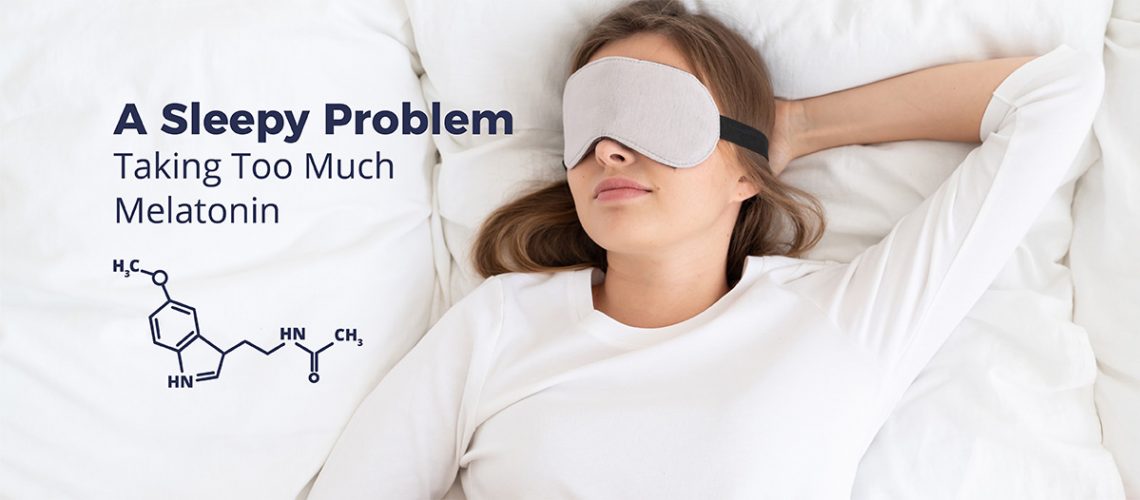Digest This
Click on the topics below to learn how probiotics can improve your digestive health, naturally.

Taking Too Much Melatonin
- @drHoberman
- Drug interactions
A Sleepy Problem: Taking Too Much Melatonin
There’s no doubt that getting a good night’s sleep is one of the best, easiest and most restorative things you can do for your body.
Some health experts have even compared your body’s need for sleep to a computer that needs to “reboot” from time to time so it runs better.
When people have problems getting the right amount of sleep due to shift work, jet lag, or insomnia, many take the easy way out by turning to an over-the-counter sleep aid like melatonin for help.
Unfortunately, taking what most people assume is a “safe” sleep aid creates its own set of problems, especially for kids, according to a recent study from the CDC’s Morbidity and Mortality Weekly Report that details a dramatic increase in poisonings involving melatonin.
By The Numbers
Between 2012-2021, the number of children who had ingested too much melatonin ballooned by a staggering 530 percent to more than 52,000, according to data collected by the American Association of Poison Control Centers’ National Poison Data System.
During that decade. the number of calls to poison control exploded from 2012 (0.6 percent) to 2021 (4.9 percent). Nearly 28,000 children received care for a melatonin overdose, more than 4,000 children were hospitalized (mostly teenagers) and two babies (under age 2) died. Melatonin overdosing hit its peak prior to the coronavirus pandemic (a 38 percent jump from 2019 to 2020).
These rising numbers may have also shed light on an even deeper and known problem: A significant variance in the amount of melatonin contained in supplements based on their labelling.
The amounts of melatonin in a tablet may deviate from a decrease of 83 percent to an increase as high as 478 percent (based on its labelled content), according to a 2017 study in the Journal of Clinical Sleep Medicine.
Although most of you recognize melatonin as a supplement, it’s also a hormone produced and released by the pineal gland in the brain. The production of melatonin is light-sensitive too, meaning the pineal gland produces more melatonin at night to help us get to sleep and much less during the day.
What’s more, some foods produce melatonin naturally (flaxseeds, walnuts, yellow bell peppers, almonds and goji berries) but not enough to make a real difference in your sleep.
So, if melatonin can be problematic, what do you do to get more sleep that doesn’t involve a drug?
Safer, More Effective Sleep Solutions
If you’re looking for ways to improve your rest, there’s plenty of safe and easy ways to do it as we described in our recent Sleep 101 blog.
Maintaining a consistent sleep schedule and routine, shutting down the tablet and keeping your bedroom cool and comfortable can go a long way toward helping you get the shuteye your body needs.
Your gut also plays a role in your quest for more sleep too, as studies have shown how consuming prebiotics, the parts of vegetables made of non-digestible plant fibers and carbohydrates, can be just as helpful.
But it can be challenging to eat enough vegetables every day to make a real difference in your sleep.
However, you can ensure your family and your kids get the prebiotics they need by taking a probiotic like EndoMune Junior and EndoMune Advanced Probiotic that contains multiple strains of beneficial bacteria from the Lactobacillus and Bifidobacterium families and a prebiotic (FOS) derived from plant fibers.
Resources
Morbidity and Mortality Weekly Report
Journal of Clinical Sleep Medicine
There Is An Endomune Probiotic For Every Lifestyle
-
EndoMune Metabolic Rescue
$44.95 -
EndoMune Advanced Probiotic
$42.95 -
EndoMune Companion Pack
$112.93









